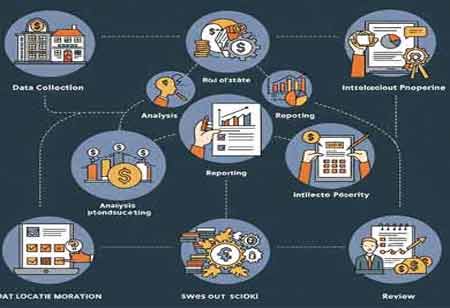CLOSE
Specials
- RegTech Europe
- Financial Risk Management APAC
- Investment Banking APAC
- Corporate Advisory APAC
- Regtech APAC
- Escrow Services
- Digital Banking Latam
- Trading Solutions APAC
- Treasury Management Europe
- CPA Firms Canada
- Financial Risk Management Europe
- Mortgage Broker
- Financial Licensing Europe
- RIA Advisory Europe
- FinTech Canada
- Financial Asset Management APAC
- Investment Banking Canada
- Payment Solution
- Lending Mangment Latam
- Payment Solution Europe
- Broker Dealer Firms Canada
- Alternative Investments Canada
- Financial Fraud
- Investment Management Latam
- Financial Health Europe
- Lending mangment
- Financial Marketing
- Proprietary Trading Europe
- Wealth Management
- FinTech
- Financial Brokerage Firm APAC
- Investment Advisory Europe
- Investment Advisory APAC
- Wealth Management MENA
- Claim Adjusting
- Claim Adjusting APAC
- Mergers and Acquisitions Consulting APAC
- Equipment Financing
- CPA Firms
- Mergers and Acquisitions Consulting Canada
- Investment Services
- Valuation Services Canada
- Wealth Management APAC
- Broker Dealer Firms
- Debt Collection Agencies
- Mergers and Acquisitions Consulting
- FinTech Europe
- Fintech Latam
- Financial Planning / Retirement
- Investment Management
- Financial Compliance
- Digital Banking Europe
- CFO Services
- Debt Collection Agencies Europe
- Wealth Management Europe
- Mergers and Acquisitions Consulting Europe
- Financial Restructuring Europe
- Financial Portfolio Management Canada
- Business Loan
- Payment and Card Latam
- Wealth Management Latam
- Mergers and Acquisitions Consulting Latam
- Tax Advisory Canada
- Trading Solutions Europe
- Alternative Investments
- Digital Insurance Europe
- Investment Services Latam
Weekly Brief
×Be first to read the latest tech news, Industry Leader's Insights, and CIO interviews of medium and large enterprises exclusively from Financial Services Review
Thank you for Subscribing to Financial Services Review Weekly Brief
IoT Influencing the Future of Digital Asset Trading
Decentralised exchanges (DEXs), a mechanism to trade assets peer-to-peer without relying on a centralised intermediary, are growing in popularity as the world of digital asset trading is expanding quickly.

By
Financial Services Review | Monday, April 10, 2023
Stay ahead of the industry with exclusive feature stories on the top companies, expert insights and the latest news delivered straight to your inbox. Subscribe today.
The world of digital asset trading is rapidly evolving, and decentralized exchanges (DEXs) are becoming more popular as a way to trade assets in a peer-to-peer manner without relying on a centralized intermediary.
FREMONT, CA: Decentralised exchanges (DEXs), a mechanism to trade assets peer-to-peer without relying on a centralised intermediary, are growing in popularity as the world of digital asset trading is expanding quickly. Unfortunately, the lack of efficient technology to support them has limited the potential of these exchanges. A type of cryptocurrency exchange known as a decentralised exchange (DEX) runs on a distributed network without the aid of a central authority or middleman. DEX work on a peer-to-peer network of nodes that communicate with one another to enable trading, as opposed to centralised exchanges, which depend on a single authority to store user data and execute trades.
A distributed network of gadgets can now support decentralised exchanges because of the development of the Internet of Things, which allows gadgets to communicate safely and efficiently. A transparent record of every transaction that can be audited and confirmed exists since trades are done on a distributed network. Fraud and other financial crimes can be avoided in this way, which is beneficial in heavily regulated sectors like finance and healthcare.
The Internet of Things (IoT) is a network of networked devices that may exchange data, automate procedures, and communicate with one another. As opposed to centralised exchanges, which require a central authority or middleman to function, decentralised exchanges are a type of Bitcoin exchange that runs on a distributed network. A trading platform that uses IoT to perform trades in a safe and decentralised manner is known as an IoT-powered decentralised exchange. Decentralised exchanges enabled by the Internet of Things offer consumers more security and anonymity, which is one of its main advantages. These exchanges do away with the requirement for a central organisation to control and store user data by making advantage of a distributed network of devices. Users now have more control over their personal information, which lowers the chance of data breaches.
Decentralised exchanges driven by the Internet of Things also have the advantage of being more effective than conventional centralised exchanges. This is so because they work on a peer-to-peer network, which bypasses the middlemen and lowers transaction costs. For companies that depend on the trading of digital assets to run their operations, this can lead to huge cost reductions. Further, they provide increased accountability and transparency. These exchanges can offer a transparent record of all transactions by utilising a distributed ledger system, which can aid in the prevention of fraud and other types of financial crime. Businesses that operate in tightly regulated sectors like finance and healthcare can particularly benefit from this.
One approach is to incorporate these conversations into their current business processes. These exchanges can be used by firms, for instance, to carry out international trades or to trade digital assets as part of an investment plan. Businesses can increase their productivity, cut costs, and get a competitive edge in the market by utilising the advantages of these exchanges. By creating decentralised applications (dApps) that make use of these exchanges, businesses can also gain from IoT-powered decentralised exchanges. Businesses can give their clients a safer and more effective way to trade digital assets by creating dApps that are coupled with IoT-powered decentralised exchanges. This can increase the company's revenue and help it draw in new clients and keep hold of current ones.
The integration of other new technologies, such as blockchain and artificial intelligence, is intimately related to the prospects for Dapp development in IoT-powered decentralised exchanges (DEXs) (AI). Observe the following potential developments:
• Increased adoption of DEXs: More Dapp development in the DEX arena is anticipated as the popularity of decentralised finance (DeFi) rises. Demand for decentralised trading platforms that provide greater security, transparency, and autonomy will be the driving force behind this.
• Integration with blockchain technology: Blockchain technology already serves as the foundation for the trading protocols used by DEXs. Yet when blockchain technology develops further, DEXs will probably add more features to their platforms. The adoption of smart contracts, which allow for automatic and self-executing transactions, is one strategy being investigated by certain DEXs.
• Integration with artificial intelligence: Some DEXs already employ AI to automate trading tactics and enhance decision-making. DEXs are likely to incorporate more sophisticated AI algorithms into their platforms as AI technology develops, giving them the ability to analyse massive volumes of data and find patterns and insights that can guide trading strategies.
• Development of cross-chain DEXs: The majority of DEXs nowadays are constructed on a single blockchain network. Cross-chain DEXs, on the other hand, will let users exchange assets across several blockchain networks, and they are already under construction. This will be accomplished by creating interoperability protocols that enable communication across various blockchain networks.
• Use of decentralized data networks: To store and disseminate data relating to trade activities, DEXs will increasingly rely on decentralised data networks, such as the InterPlanetary File System (IPFS). Compared to centralised data storage options, these networks offer more security and resilience.
Overall, the adoption of more new technologies will have a significant impact on Dapp development in IoT-powered DEXs. DEXs will be in a better position to provide users with a more effective, secure, and transparent trading experience by utilising the unique powers of these technologies.

Copyright © 2025 Financial Services Review. All rights reserved





